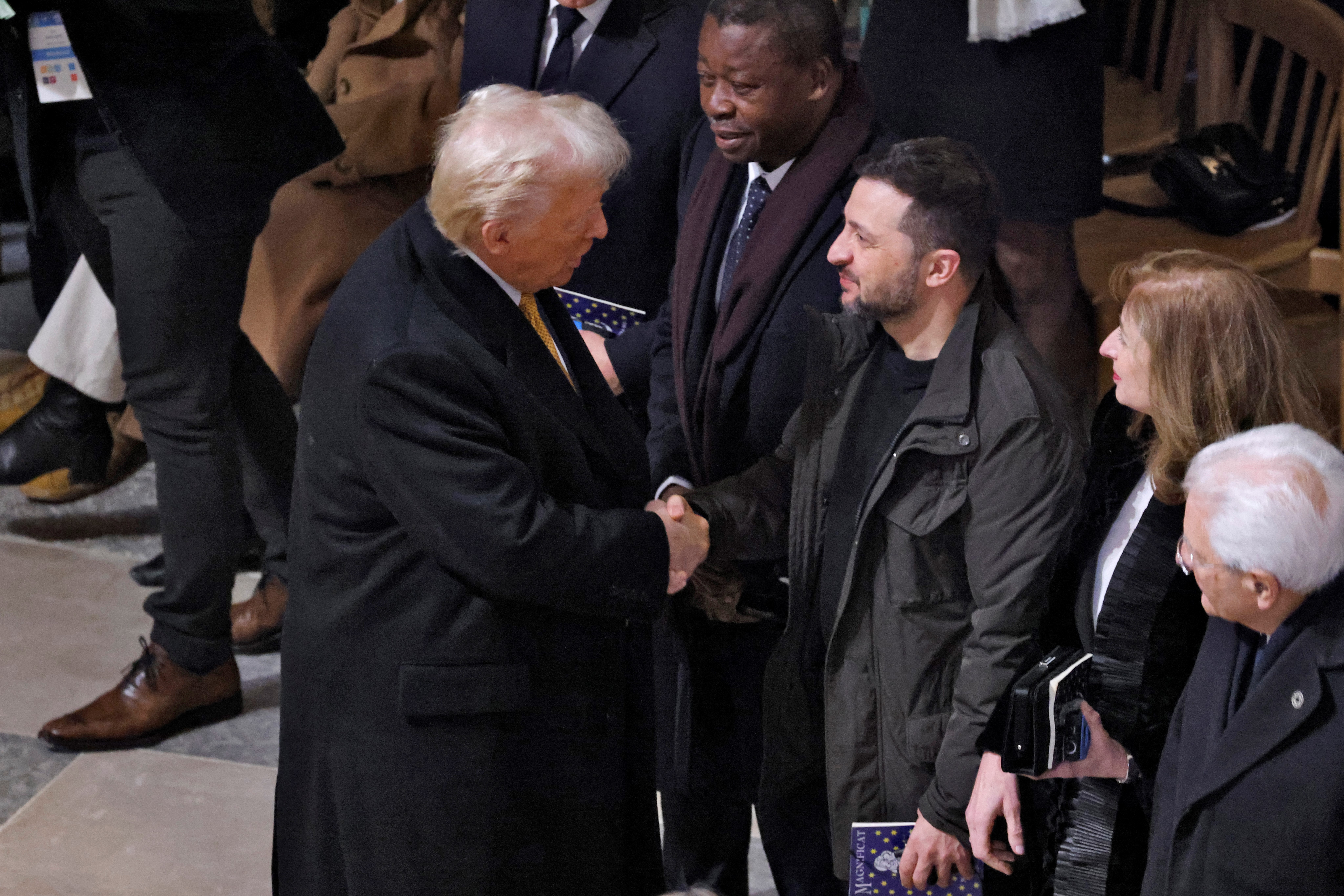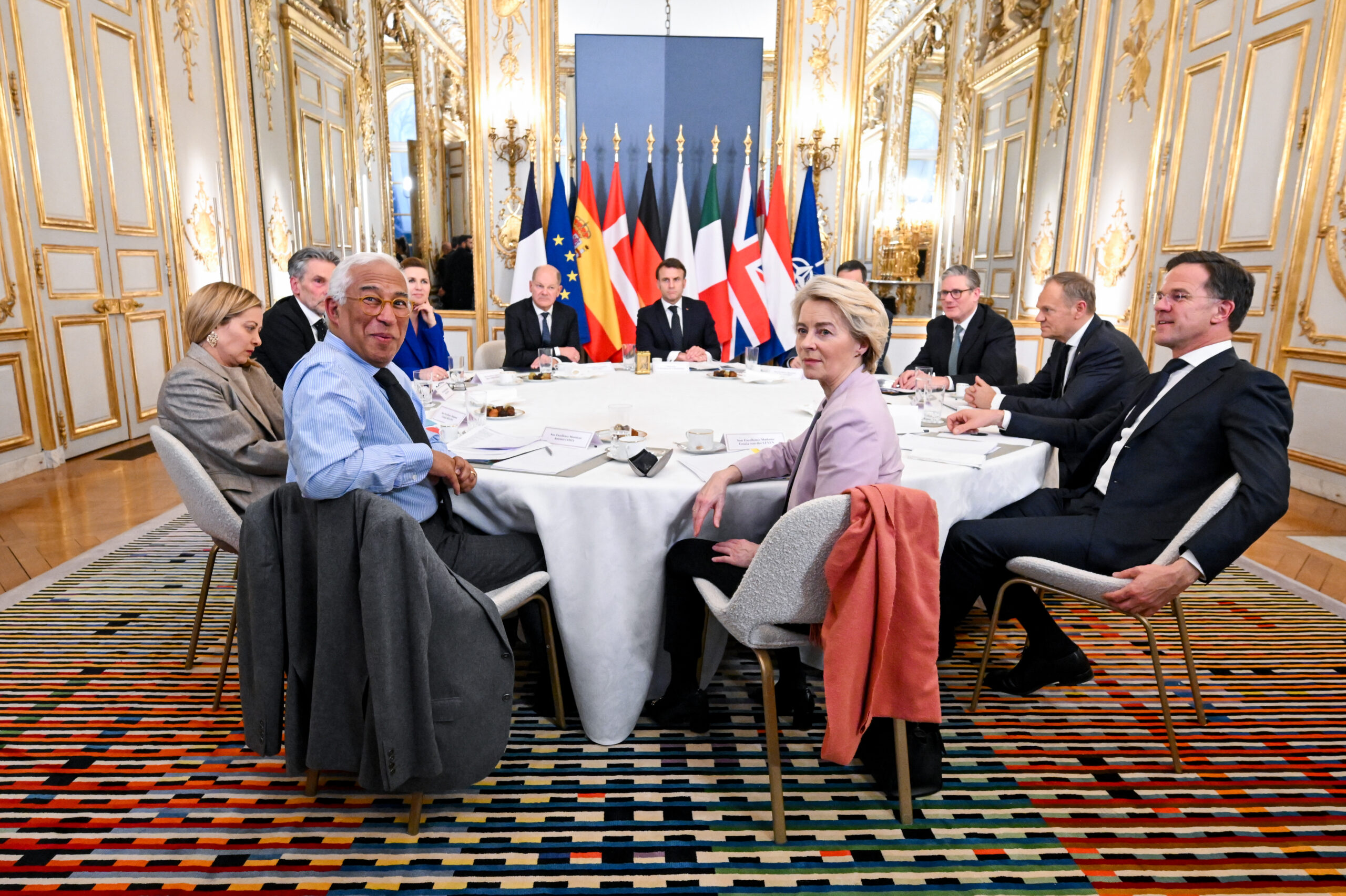Brussels -Until a few months ago, it might have seemed like the most dystopian of possible scenarios: the US president calling Volodymyr Zelensky a “dictator without elections” and the Ukrainian premier accusing him of “living the web of Russian disinformation,” with the Kremlin applauding the “independence” of its lifelong enemy, the White House. To add a grotesque dash, European Commission President Ursula von der Leyen is in Barbados to attend the signing of two projects between European companies and the Caribbean island.
The escalating confrontation between Donald Trump and Zelensky became direct tonight (in the US afternoon) when the US president accused Kyiv of starting the war and Zelensky of being unpopular in his own country. In the morning (in Kyiv), the Ukrainian president responded in kind, saying that Trump “lives in a web of disinformation” from Russia. It could have ended there, but it did not. In an angry post on his Truth social platform, the tycoon called Zelensky “a dictator” who “refuses to hold elections.” Trump added, “He better move fast, or he won’t have a country left.”

You would think all hell would break loose over Brussels. However, for the time being, the European capital is silent. At the same time, according to the Tass news agency, Russia’s foreign minister, Sergey Lavrov, immediately praised Trump as “a totally independent politician” who “does not hide his views about pathetic individuals like Mr. Zelensky.” Moreover, amid the diplomatic incident, the US envoy for Ukraine and Russia, Keith Kellogg, was expected in Kyiv for a meeting with Zelensky to reassure him about Ukraine’s inclusion in peace negotiations with Moscow.
In response to Trump’s attacks, the Kyiv International Institute of Sociology (KIIS) released a brand-new survey in which it claimed that 57 percent of Ukrainians trust Zelensky, while Foreign Minister Andrii Sybiha wrote on X that “no one can force Ukraine to surrender” after it “withstood the most horrific military attack in modern European history and three years of total war.” At a press conference in Kyiv, Zelensky reiterated that Ukraine “is not for sale,” referring to the indecent proposal to surrender 50 percent of the country’s strategic minerals in exchange for military and economic aid he received from the White House.
Second round of talks at Elysee Palace, Paris: “Trump’s positions poorly understood”

As the rupture between Kyiv and its primary provider of military and economic aid over the past three years unfolds (as of December 31, 2024, the US had mobilized the equivalent of €119 billion for Ukraine compared to the EU’s €115.7), European Commission President Ursula von der Leyen is visiting Barbados and EU High Representative for Foreign Affairs Kaja Kallas is in South Africa. Sixteen EU heads of state and government are at the Elysee Palace — in-person or remotely — for the second informal summit sponsored by Emmanuel Macron for peace and security in Ukraine and Europe, following one of the eight “willing” EU countries, which the EU and NATO also attended. Today, in addition to the leaders of France, Romania, Luxembourg, Lithuania, Finland, Belgium, Bulgaria, Croatia, Estonia, Finland, Greece, Ireland, Latvia, Portugal, Sweden, and the Czech Republic, Canada, Norway, and Iceland are also participating. The only two member countries not involved in the double confrontation at the Elysée Palace were Slovakia and Hungary: Peter Pellegrini, Slovak president, accused Macron of dividing Europe with his initiatives.
Well before Trump called Zelensky a dictator, Paris had been the only European capital to react: “We do not understand the American logic,” French government spokeswoman Sophie Primas said this morning, referring to the words with which Macron evoked during the Council of Ministers the “diverse and often incomprehensible comments by President Trump”” whose “consistency over time we seek.” Earlier, Der Spiegel newspaper reported that German Prime Minister Olaf Sholz reportedly called Trump’s accusations “false and dangerous.” From Brussels, nothing yet. Perhaps it is just a matter of time difference.
English version by the Translation Service of Withub
![[foto: imagoeconomica]](https://www.eunews.it/wp-content/uploads/2023/09/Imagoeconomica_1917240-scaled.jpg.webp)








